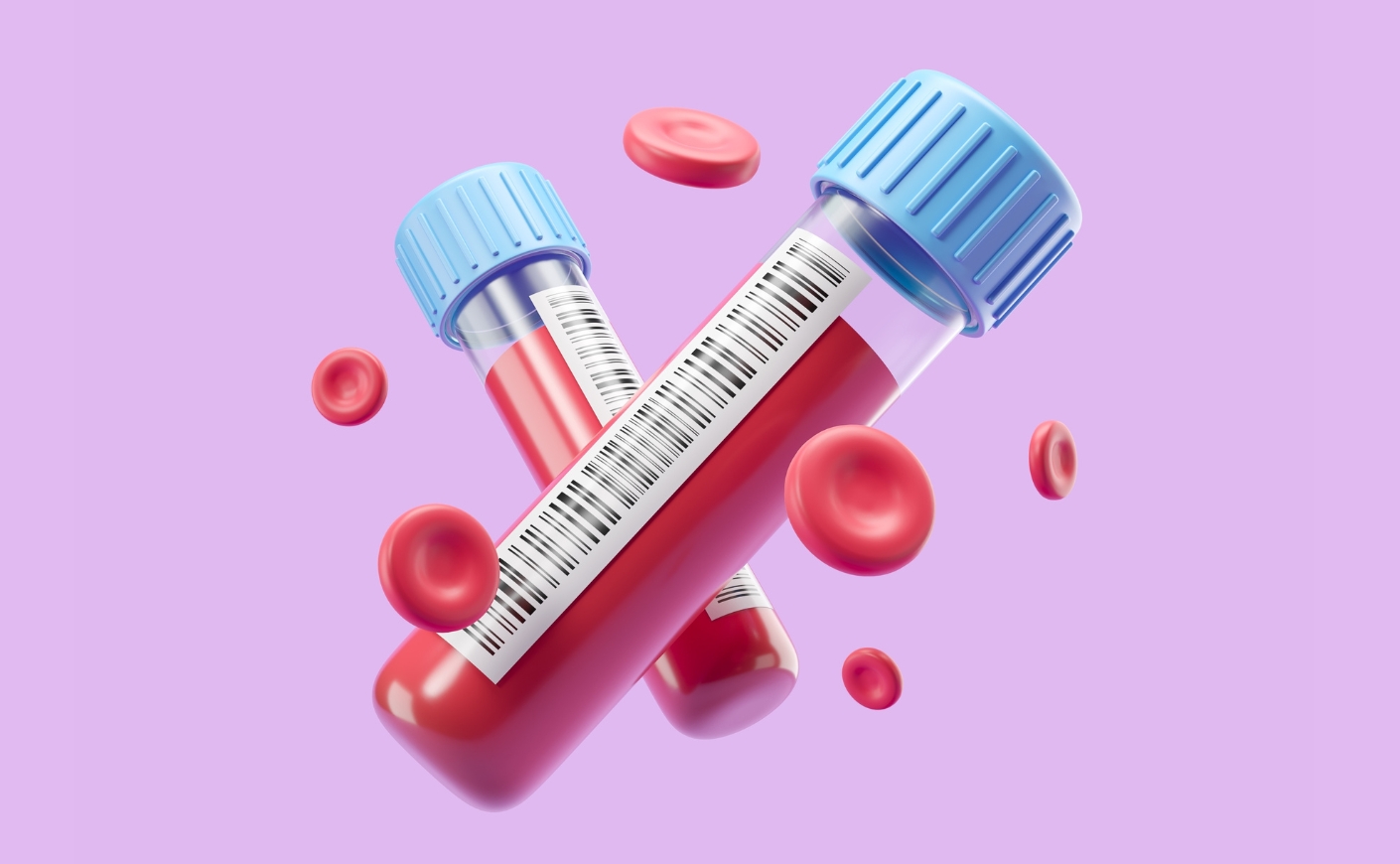Cancer screening is at a turning point. For decades, most tests focused on one form of the disease — like mammograms for breast cancer or colonoscopies for colorectal cancer — but new advances have made it possible to detect multiple cancers with a single tool. These multi-cancer early detection (MCED) tests are still in their infancy and haven't yet been approved by the FDA, but data shows that they could be a powerful tool to help clinicians catch cancer early when treatment is most effective.
One of the most closely watched developments in this space is Cancerguard, an MCED unveiled this month by Exact Sciences (with whom we've partnered to spread the word about so many cutting-edge health developments). The blood test is capable of detecting 50 cancer types and subtypes, including the ones considered most deadly, like pancreatic, ovarian, liver, esophageal, lung, and stomach cancers. Currently, it's recommended for people ages 50 to 84 with no known cancer diagnosis in the past three years, and it can be purchased for $689.
To learn more about this cutting-edge tech, we spoke with Tom Beer, MD, chief medical officer at Exact Sciences, about the decade of research that went into bringing this groundbreaking product to market, how it works, and why he believes it could one day be part of your annual check up.
Walk us through the key biomarkers that Cancerguard uses to detect the early stages of multiple tumors.
Dr. Tom Beer: The test is an outgrowth of decades of cancer biology research, which led to the discovery that cancer is a disease of the DNA. DNA modifications — either through mutation or through methylation, which is a mechanism that silences certain genes so they’re not expressed and don’t produce the proteins they’re supposed to — are a universal feature of cancer. What we’re measuring in our tests are DNA methylation markers and cancer-related proteins in the bloodstream.
Why isn't detection for breast and prostate cancers included in the test?
It does detect some breast and prostate cancers, which have markers that are shared across other cancer types. But it’s not indicated for screening for these two specific types because they’re notoriously low shedding cancers — meaning they don’t shed a lot of DNA into the bloodstream, which makes them hard to detect with our blood test. Fortunately, there are some really good screening options available for both those cancers.
Is Exact Sciences working on any future enhancements to Cancerguard?
I’m a little limited in what I can reveal right now, but there are two things I want to discuss. One is the test. We’re going to continue to iterate and continue to make it even better. As I mentioned earlier, we’re currently using DNA methylation and protein markers in our test, but we’re also evaluating strategies to add a third biomarker class.
The other piece, which I think gets neglected a bit, is the experience that folks have with the test and the support and services that we can provide. Currently, a licensed health professional will reach out to each person who gets a positive test result to make sure they understand their results and have all the information they need. Patients will also have access to our third-party patient navigation tool, and we have a reimbursement program where — in the unlikely scenario that an insurance provider won’t cover additional screening [if you test positive with Cancerguard] — we’d cover up to $6,000 of out-of-pocket costs. As we think about the evolution of this product, we want to continue to make this as accessible and easy to use as possible.
Will Cancerguard be submitted for FDA approval?
The test is available as a laboratory-developed test, which is a pathway toward FDA approval. One of the advantages of using this route is that we can iterate it efficiently and quickly, so as we improve the test we can bring new versions to market quickly. In the long run, we do have aspirations to see it win approval, but that’s off into the future.
How do you envision people will use Cancerguard in conjunction with current screening tools?
This is a test that I think is likely to be of interest to folks who really want to be proactive about their health. That’s who I view as the early adopters. But I’m absolutely convinced that when we look back over the horizon, 10 or so years from now, we’re going to look back at 2025 and wonder: How is it that we just let three-quarters of cancer cases sneak up on us? I do believe this is going to become a part of routine preventive services as part of their checkup. But I don’t see single-cancer screening tests going away, because there are biological limitations to blood tests.
Our analysis showed that if our tests were used by everybody in the U.S., it would be expected to reduce the burden of stage four advanced metastatic cancer by 40 percent. That’s a huge impact.
This interview has been edited and condensed for clarity and length.









